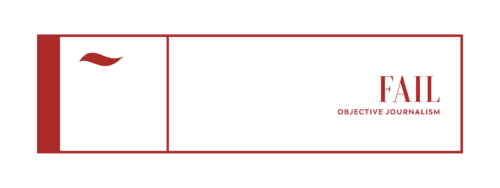Fake News
The Best SCOTUS Decisions Of 2024, Ranked
June 2024 the Supreme Court of the United States gave decisions on the highest profile cases in the country. Here is a rank of the absolute best of the Supreme Court this year.
2024 Best SCOTUS Decisions:
- “Immunity. Immunity, immunity, immunity.”
The Supreme Court ruled that President Trump was totally immune for any activities taken as part of his official capacity as President of the United States. While the court held that unofficial activities do not provide immunity, the decision is a major victory for President Trump and democracy and the American People against an abusive activist Department of Justice.
What does it mean? Presidents will not be able to go after each other accusing every single succeeding leader of whatever crime they feel like forever turning us into a Banana Republic.
- The Executive Branch does NOT get to interpret laws
In an overturn of 40 years of precedent, the Supreme Court re-established their constitutional authority as the interpreters of law. The legislative branch (Congress) makes laws. The executive branch (the Administration) enforces laws. The judicial branch (the courts) interpret laws. For 40 years SCOTUS has unconstitutionally allowed the executive branch the authority to interpret laws by defaulting to their wisdom in what is referred to as “the Chevron Doctrine.” The Chevron doctrine dictated that where a law is unclear, whatever the executive branch says is the law is the law by default. The Court has overturned the Chevron decision and our civic structure is restored.
What does this mean? Runaway agencies like the Environmental Protection Agency (EPA) and the National Labor Relations Board (NLRB) will not have any shield against challenges to their extremely loose and broad interpretations of Congressional authority. Congress will have to start actually writing laws with specificity.
- We actually do have a right to trial
The Supreme Court ruled against the Securities Exchange Commission (SEC) in a case where they had imposed civil penalties on a man accused of fraud. The administrative fining and penalty system employed by the SEC in this case is extremely common across many agencies including the IRS, EPA, NLRB and others. The Court ruled that these practices of circumventing trial are unconstitutional.
What does this mean? It is not immediately clear how broadly this ruling will impact Americans. If applied evenly across each agency who uses administrative penalty processes, it could completely reshape the entire Executive Branch and their mode of operation. It could call into question the ability of the Executive Branch to collect fines at all.
- Homeless encampments can be banned from cities
The Supreme Court ruled that there was no authority by the court to prevent a city from imposing rules that disallow for public sleeping, camping or encampment. Cities across particularly the western United States (due to favorable weather) are grappling with serious homelessness issues. Cities like Grants Pass, Oregon and Seattle, Washington were faced with sacrificing public space which is meant to be enjoyed by everyone for the select few who had commandeered the space for their own free living which often posed serious health and safety issues for the community. The Supreme Court wisely ruled that no court has the authority to circumvent basic public space management at the local municipal level.
What does this mean? This will allow local governments to put the good of their communities at the top of their agendas and will force them to truly deal with the homelessness crisis instead of pretending that letting people sleep in public parks is to anyone’s benefit including the unhoused.
